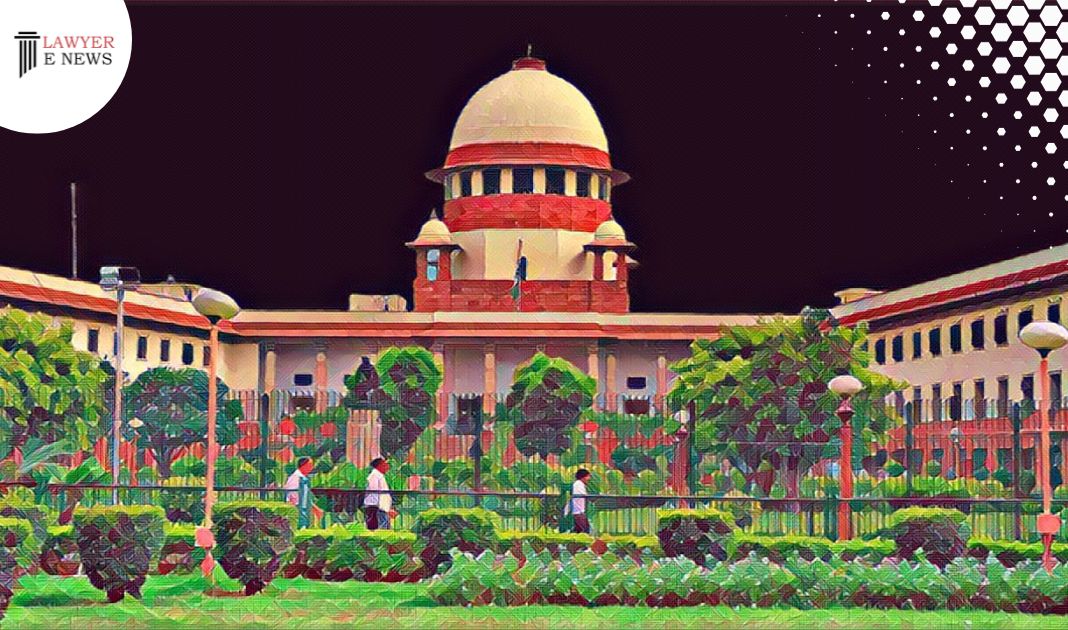-
by sayum
14 February 2026 2:22 PM



High Court’s reversal of Trial Court’s findings upheld due to lack of evidence proving matrimonial relationship and paternity.
The Supreme Court of India has upheld the High Court’s dismissal of a suit for partition and separate possession, filed by the appellant claiming to be the son of the respondent from an alleged marriage. The bench, comprising Justices C.T. Ravikumar and Rajesh Bindal, emphasized the appellant’s failure to provide adequate evidence of the matrimonial relationship and the resultant paternity, thus reversing the favorable decisions from the lower courts.
The appellant, Ram @ Ramdas Sheshrao Neharkar, had filed a suit for partition and separate possession of property, asserting that he was born from the wedlock of his mother, Padminibai, and the respondent, Sheshrao Baburao Neharkar. The Trial Court granted the appellant a 1/5th share in the property, a decision which was upheld by the First Appellate Court. However, the High Court of Bombay, Bench at Aurangabad, later reversed these findings, leading to the present appeal.
The Supreme Court observed that the appellant bore a heavy burden to establish the alleged matrimonial relationship between his mother and the respondent. Justice Rajesh Bindal noted, “The appellant/plaintiff has not been able to establish that there were any matrimonial relations between the respondent no. 1/defendant no. 1 and Padminibai.” The evidence presented by the appellant, primarily oral, was deemed insufficient to substantiate the claims of marriage and paternity.
The Court highlighted significant discrepancies in the evidence provided by the appellant. The primary witness, Padminibai, was not produced to corroborate the claims. Additionally, the appellant’s delay in filing the suit—nearly 16-17 years after attaining majority—further weakened his case. The High Court had noted that Padminibai had remarried, and there was no clear evidence of divorce from the respondent prior to this second marriage.
Addressing the appellant’s contention that the High Court should not have re-appreciated the evidence, the Supreme Court clarified that the High Court acted within its jurisdiction. The High Court found the lower courts’ acceptance of the appellant’s claims to be perverse, given the lack of concrete evidence and the significant time lapse before the claim was raised.
Justice Rajesh Bindal remarked, “From the perusal of the judgment of the High Court, it is evident that the relevant facts to establish the factum of marriage of mother of appellant/plaintiff with respondent no. 1/defendant no. 1 were not considered by the Trial Court as well as the First Appellate Court. There were large scale discrepancies in the evidence led.”
The Supreme Court’s dismissal of the appeal underscores the necessity of robust and timely evidence in matrimonial and paternity claims within property disputes. By affirming the High Court’s decision, the judgment reiterates the judiciary’s stringent standards for evidence in such cases, ensuring that claims must be substantiated with credible proof. This ruling serves as a crucial precedent for future cases involving disputed matrimonial relationships and inheritance claims.
Date of Decision: July 9, 2024
Ram @ Ramdas Sheshrao Neharkar vs. Sheshrao Baburao Neharkar and Others
